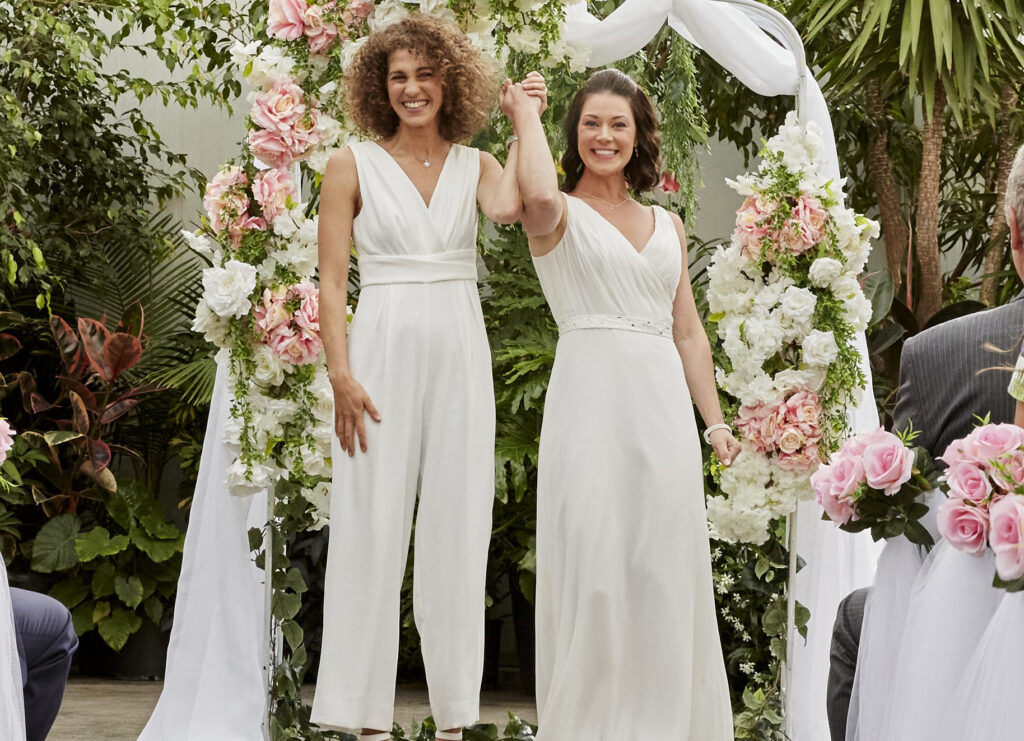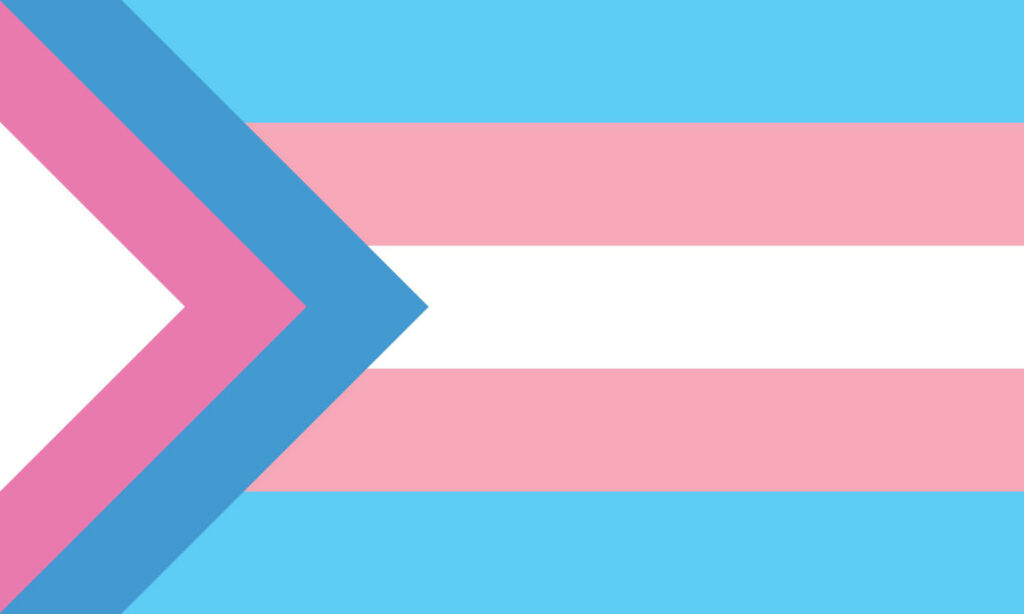In 2006, South Africa made history by becoming the first African nation to legalize same-sex marriage. But despite such victories, there remains a complex web of debates and limitations that still impact queer individuals today.
The journey towards marriage equality has been both inspiring and controversial – touching on religious beliefs, civil union alternatives, and feminist perspectives
So, we’re diving deep into these topics. Our aim? To shed some light and make everything clear as day for you.
The global evolution of same-sex marriage
Our queer world has seen remarkable strides towards marriage equality. In a milestone for LGBTQIA+ rights, many countries have embraced same-sex marriage as they redefine the meaning of love between two people.
The landmark case in South Africa
In 2006, South Africa made headlines when their Supreme Court ruled that prohibiting same-sex unions was against its constitution. This monumental case set an example for other African countries where homosexuality is still considered illegal.
This notable victory didn’t just redefine marriage within the country’s borders but sparked global evolution in how we perceive sexual orientation and civil marriage rights. The court ruling was more than legal jargon; it echoed through public life, affecting heterosexual couples’ perception of queer couples, too.
Impact on the LGBTQIA+ community
A decade ago, you could count the number of places that recognized same-sex marriages on one hand – thankfully, that’s no longer the case. However, we can’t forget our roots. Legalizing same-sex marriages had a profound positive impact on lesbian people and gay men in South Africa specifically – but why stop there?
Federal law: After this landmark decision by South Africa’s highest court, Congress passed legislation recognizing these unions under federal law, making them equal to heterosexual marriages nationwide.
Hospital visitation rights: A significant gain from this legalization was hospital visitation privileges enjoyed by spouses during medical emergencies, which were previously denied to many.
Social media: The role social media played cannot be overlooked either, amplifying voices advocating for marriage equality and helping shift the status quo.
Marriage isn’t just about tax benefits or hospital visitation rights, though; it’s also a public declaration of love. And why should gay couples be denied that right? The legal recognition of same-sex marriages is not merely a symbol but has real-life implications in terms of financial stability, child welfare, and even physical health.
Debates surrounding same-sex marriage
There’s no question that same-sex marriage has sparked fiery debates worldwide. Controversy is an unavoidable consequence of progress, and unfortunately, the world is full of close-minded bigots. As the winds of progress blow, these discussions evolve and become more nuanced.
The role of religious groups
Religious groups play a significant role in shaping public opinion on same-sex marriages. Some vehemently oppose gay marriage based on traditional beliefs, while others embrace love in all its forms. Yet many are torn between doctrine and compassion – after all, aren’t we taught to love our neighbors?
This dynamic makes for fascinating discourse within religious communities about sexual orientation and morality. A study found that religious rights advocates have been increasingly vocal, further stoking this debate with perspectives often grounded in personal faith rather than empirical evidence.
The question of civil unions
Civil unions were once hailed as an acceptable compromise for those opposing full-on same-sex marriages; however, they’ve proven inadequate over time due to limitations like hospital visitation rights being denied to partners or children not being recognized as biological parents by law – issues which married heterosexual couples never need to confront.
Federal courts eventually acknowledged these disparities; still, the idea lingers amongst some factions who see civil unions as enough without fully recognizing same-sex relationships under federal law as “marriages.” A detailed review by human rights organizations paints a stark picture here: Inclusive marriage definitions have far-reaching consequences for the legal and well-being of same-sex couples, which is why this issue remains contentious.
These debates remind us that progress isn’t linear. The landmark case in South Africa decriminalizing homosexuality happened years earlier than similar milestones elsewhere. This tells us that each nation has its unique path toward equality – shaped by culture, history, public life, and more. For instance, Angola recently joined this journey as well.
Because every moment matters, we need to keep challenging the status quo. It’s our responsibility to continually push boundaries and seek improvement.
Limitations and drawbacks of same-sex marriage
The lengthy, strenuous campaign for same-sex marriage has been essential to the cause of fairness. But even with its importance in the quest for equality, there are limitations and potential drawbacks to this institution from a queer perspective.
The exclusivity problem
One major critique lies within what’s termed the ‘Exclusivity Problem.’ It points out that same-sex marriage tends to be limited mainly to those who self-identify as gay or lesbian. This framing often leaves out individuals with other sexual orientations, like bisexuals, pansexuals, or people questioning their sexuality.
This focus on gays and lesbians could lead some folks to feel alienated from the conversation about equal rights. If we think of it like a party where only certain guests get invites – wouldn’t you feel left out if your name wasn’t on the list? Now imagine feeling that way about something as fundamental as love and commitment.
State control and respectability politics
A more nuanced argument comes into play when discussing state control over individual identities through respectability politics. Some critics argue that legalizing same-sex marriages gives states an increased ability to monitor individuals’ respectability by defining acceptable forms of relationships.
To give an analogy – it’s kind of like setting strict rules at school around how students should behave: no running in corridors, no shouting… Accustomed to the regulations, they become an ingrained part of our lives.
There’s a risk that we might get too caught up in ‘fitting into’ the status quo and forget to question if these norms are actually serving us. Many question if we’re losing sight of other equally important aspects, like fighting for anti-discrimination laws or challenging gender roles by fighting for credibility within a system that sustains itself on oppressing marginalized and underrepresented groups. To that, I always say — we should have the right to choose for ourselves. Queer couples who don’t want to get married won’t get married and don’t have to. But we should all have the same opportunities and protections if we do choose that for ourselves.
The intersection of same-sex marriage and feminism
It’s intriguing to consider the implications of same-sex marriage on feminist perspectives regarding wedlock. Let’s unravel this complex fabric thread by thread.
The Civil Union Act in South Africa: A step forward, yet a mile behind?
In 2006, the Civil Union Act in South Africa legalized same-sex marriages. It was indeed a notable victory for gay rights and an inspiration for human rights advocates worldwide. But there’s more to this story than meets the eye.
This act is exclusive to self-identifying gay and lesbian couples, which points to an inherent inequality in laws intended to promote equality. Thus while it brings joy to some couples, it highlights exclusionary practices within laws that are meant to promote equality.
Feminist critique of same-sex marriages
Feminists have long questioned traditional notions of marriage, contending that they uphold patriarchal structures and heterosexual norms. Now we ask – does legalizing same-sex marriages challenge these ideas? Or does it simply repackage them under a rainbow flag?
Some feminists argue that promoting same-sex unions reinforces conventional views about relationships being validated only through state-sanctioned ceremonies like civil marriage or congress passed acts like DOMA (Defense Of Marriage Act). They question if such recognition might lead us away from questioning heteronormative structures altogether.
We can’t ignore the role social media plays in shaping public life today when discussing modern-day feminism and LGBTQ+ issues. While platforms allow marginalized communities space for expression often denied elsewhere, they also amplify voices opposing gay marriages based on personal beliefs or religious reasons, which unfortunately fuels the national issue further.
Remember when President Clinton signed DOMA into law years earlier? Social media didn’t exist then. Imagine if it did. The debates and dialogues could have been even more heated.
The physical health consequences of discrimination
Stress from social exclusion doesn’t just affect mental health. It hits physical health hard, too, particularly for same-sex couples. These folks often can’t visit their partners in hospitals, or they get the cold shoulder at public health facilities. This isn’t simply about being able to say “I do.” It’s about basic human rights and equality.
FAQ
What is the clause for same-sex marriage?
The clause for same-sex marriage varies by country, but it generally gives LGBTQIA+ couples the same legal rights as traditional married couples.
What did the 1996 Defense of Marriage Act DOMA do?
The 1996 DOMA denied federal benefits to legally married same-sex couples. It was ruled unconstitutional in 2013.
What are the benefits of marriage equality?
Marriage equality offers legal protections, tax benefits, health insurance coverage, parental rights, and social acceptance, among other things.
It’s a convoluted milieu out there, particularly with respect to the complicated terrain of same-sex marriage. We’ve traversed its global evolution, shining a light on notable victories like South Africa’s 2006 landmark case.
We’ve delved into ongoing debates and acknowledged how religious groups can influence perspectives. The question of civil unions as an alternative was not left untouched either.
We ventured into potential limitations and drawbacks, too—how self-identification issues exist and how state control plays its part in this narrative. Remember: even with all these challenges, every critique is a step towards understanding better.
A surprising intersection between same-sex marriage and feminism also came under our lens, adding yet another layer to this multifaceted issue.
In essence? This critique of same-sex marriage reveals that love isn’t just about hearts; it’s equally about rights.






